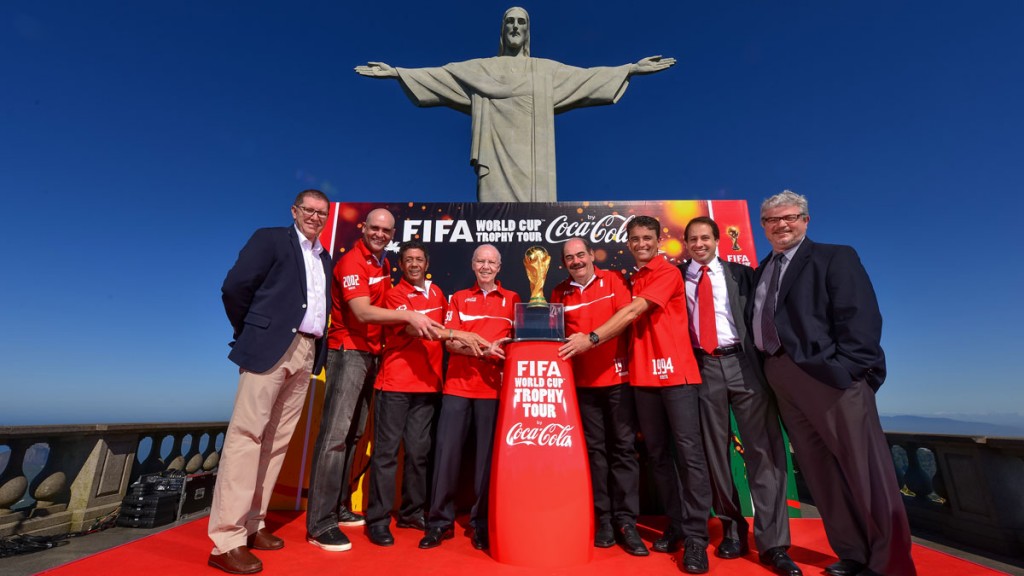
It’s a good thing the poets and playwrights of Ancient Greece are all dead. The Olympics may be Greek in origin, but had Homer or Aeschylus tried to make capital out of the Games, they would have faced the Furies of the International Olympic Committee (IOC). What about freedom of expression? Yes, but it comes at a price – around $200m.
You see, under Rule 40 of the Olympic Charter, you’re not allowed to mention the Games in any kind of commercial capacity – especially on Facebook and Twitter – if you’re not an official sponsor. So, if Homer and Aeschylus were alive today, perhaps eking out livings by touting their advertising slogans or dreaming up marketing campaigns, they must on no account mention Hermes, Argos and Olympus in their writings – all companies and none of them sponsors.
You might just get away with celebrating the Greek goddess of victory. Nike is at least an “official supplier” – a lesser rank. But please don’t mention that tribe of women warriors. From here on in, Amazon shall be the “big wet thing” that flows through host nation Brazil, or the “big green thing” that is 60% within it.
A spot of bother
I’m being facetious. But tell that to Oiselle. The sportswear maker posted a photo of American runner Kate Grace, whom Oiselle sponsors, wearing her competition number, according to MarketWatch. The problem was, if you looked very, very closely, the number card bore a small logo of the Olympic rings. Cue a public telling off from the United States Olympic Committee for breaching Rule 40. A number of athletes, too, have been told off for thanking their sponsors on social media.
Rule 40 was relaxed a bit last year amid complaints it was overly tyrannical (from the Greek word tyrannos). Remember four years ago when everybody was banned from selling French fries at London 2012 except for MacDonald’s because Ronald had paid for the pleasure? Well, now non-Games sponsors are allowed to feature athletes in their ads so long as they sponsor them and the ads have been running for at least four months prior to the Olympics, as Professor Charles R Taylor explains on Forbes.com. But they must shun Olympic terminology and symbols – and the words “effort” and “performance”. They’re trademarked for some reason.
And if you were hoping to see one of the greatest Brazilian athletes of all time light the Olympic cauldron, you might be in for a disappointment, according to Business Insider. Apparently, Pelé, who the organisers had approached, might not be allowed to because he is the face of the “wrong” companies. We shall see tonight.
Rio 2016 isn’t cheap
To be fair to the sponsors, they do have a point. Putting on the Olympics is ruinously expensive, as I outlined last week. Maybe that’s the problem – perhaps we need to return to an era when sport was about, well, sport, as Laura Reston ponders in the New Republic magazine. But for now, it’s the reality. And it doesn’t get more real than that $200m figure I mentioned at the start – that’s about how much it costs to become a bona fide “Olympic Partner” – the top-tier of sponsors. Sitting up there with the gods are Coca-Coca, Samsung and Visa, flexing their financial muscles to put on a show for the hoi polloi, the likes of you and me, to enjoy.
The problem is, maybe the sponsors have a bit too much financial muscle. Not only are the corporations funding the show, they’re policing it too. Now don’t get me wrong. It’s great that mega-sponsor Coca-Cola has “begun to speak up about how its partners do business”, as Bloomberg puts it, with regards to how the IOC handles the Russian doping scandal.
“We listen to consumers and see that actually there is indignation,” Coke’s Latin American president said. “Obviously, as a sponsor, we don’t like to see it because I think it damages the sport, it damages the Olympic ideals.”
True, but that makes big companies the arbiters of fairness – and ultimately, the rule-makers. Rule 40 may have been relaxed. But as Professor Taylor notes on Forbes.com, if the mega-sponsors aren’t making as much money as a result, they “may increase pressure to go back to the old rule as it would likely reduce the fee official global partners would be willing pay”.
So, the mega-sponsors are the policemen and the judges, beholden to their customers, and, of course, their shareholders. We’ve already started to see corporate bullying creeping in, as MoneyWeek magazine regular Matthew Lynn wrote recently. Let’s thank the gods we’re only talking about sport – for now.